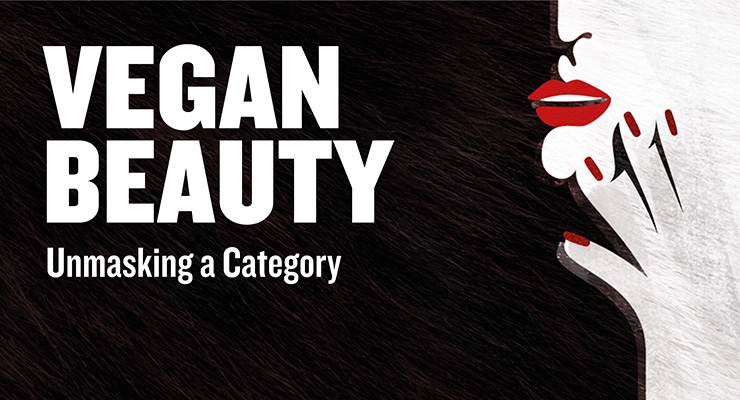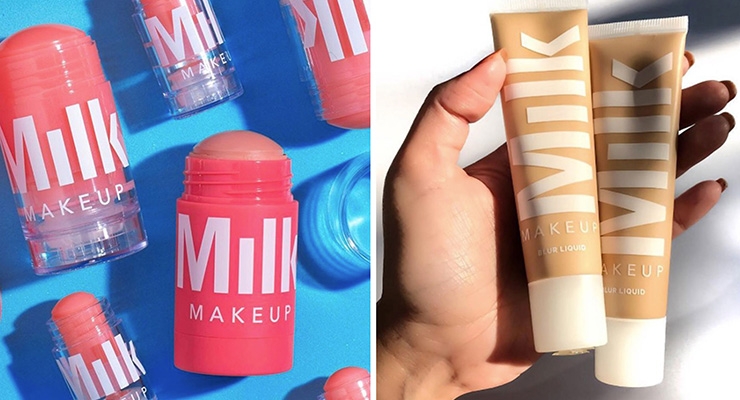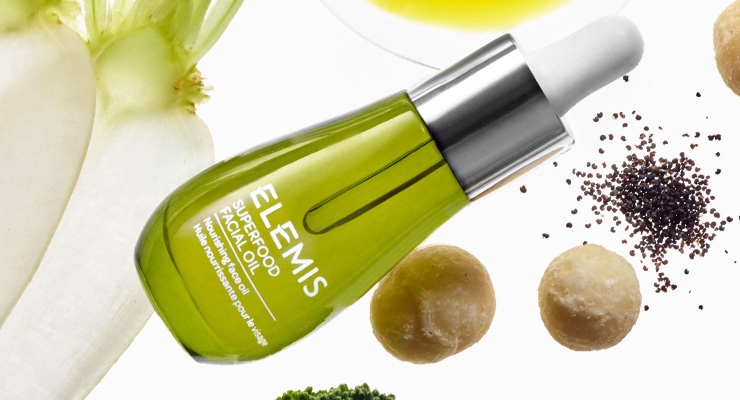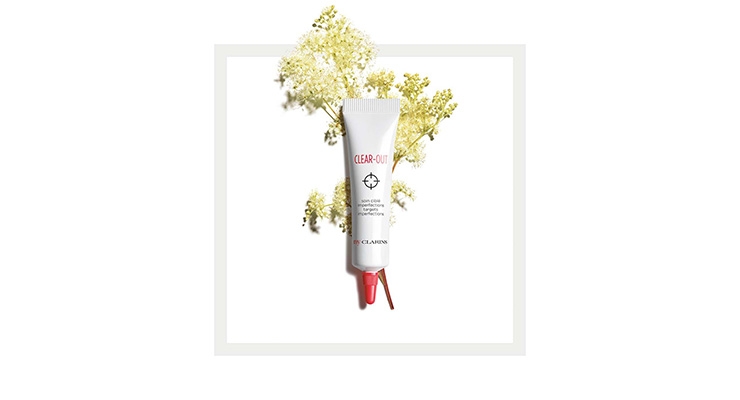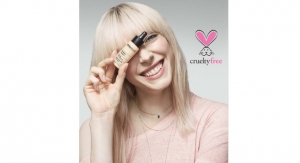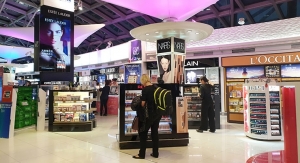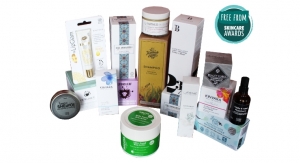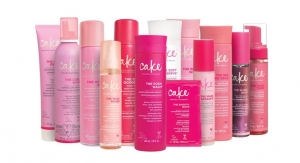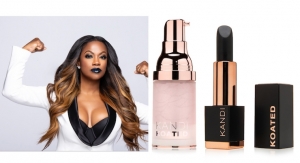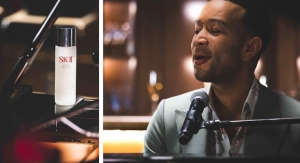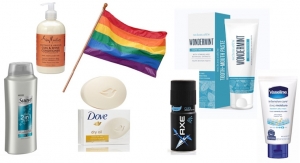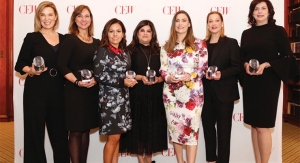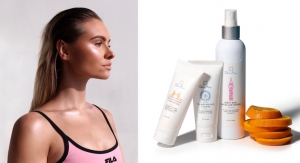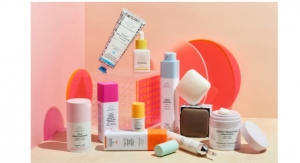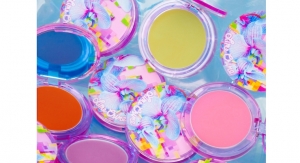Kirsty Cole , Head of Growth, Anthem Worldwide – Amsterdam08.29.19
In the USA, those identifying as vegan ‘increased by 600% between 2014 and 2017’ (Report Buyer, 2017) – a trend reverberating across the globe. More recently, The Economist declared 2019 to be ‘The Year of The Vegan,’ reporting that a quarter of Millennials now identify as vegan or vegetarian.
These echoes are felt far beyond the food category as consumers seek to adopt a vegan lifestyle—a trend supported by the rise of plant-based and ethical consumerism and fueled by a vast array of online communities. This is no longer a niche trend and certainly shows no signs of slowing down.
‘The sale of vegan prestige beauty products in the UK reported an increase of 38% in the 12-month period February 2017 to end of January 2018’ (NPD Group). Globally, it’s suggested that by 2025 the vegan cosmetics market is forecasted to reach $20.8bn.
Images above: Photo 1 by Patricia Pereira, designer, Anthem Worldwide – Amsterdam; 2: Milk Makeup; 3: Elemis Superfood Facial Oil; 4: My Clarins; 5: Botanea.
Identifying Vegan
But how can consumers identify a beauty product as truly and authentically 100% vegan? Is 90% right 100% wrong?
Product messaging across the industry is fraught with danger. ‘Vegan’ and ‘Cruelty-Free’ are of course not interchangeable, neither are the terms ‘vegan’ and ‘vegan friendly’. While it’s relatively easy to shop for cruelty-free products, especially online, it’s much harder to find personal care and beauty products that are 100% animal-free.
When beginning my search for 100% vegan beauty brands, it quickly became evident that I would not be able to, hand on heart, propose that all such brands included in this article are authentically and 100% vegan.
A truly vegan product should be free from animal ingredients, not tested on animals but also, importantly, the sourcing and processing of ingredients should not have a negative impact on animals. It’s difficult to trust brands when such key information is either not offered up, or indeed buried in language that makes the message hard to understand. Where’s the transparency?
Certifications & Symbols
The Leaping Bunny certification is wildly considered to be the gold standard for consumer products not tested on animals. The Vegan Society’s sunflower symbol further aids consumer navigation for vegan friendly products. Peta also supports the cause with one symbol to identify cruelty-free products and another for both cruelty-free and vegan products.
Danielle Saunders, Communications Manager at The Vegan Society comments;
“Confusion definitely exists when it comes to distinguishing between cruelty-free beauty products (not tested on animals) and vegan beauty products, which have not been tested on animals and contain no ingredients derived from animals. Add to this the lack of legal protection around the term ‘vegan’ and we end up in a situation where ethical consumers can be forced to do a lot of digging before they are confident that they can buy a product.
In support, we created the Vegan Trademark in order to make it easier for consumers to identify whether a product is suitable for their lifestyle. It is the most credible vegan label on the market, recognized internationally since 1990 - the number of cosmetic products we have registering with the Vegan Trademark is growing exponentially.”
However, the drivers for demand for vegan beauty products are layered - it’s not only about cruelty free or animal free products, it’s a holistic movement considerate of ethics, sustainability and of course being good for your own body – care for planet and self as a collective.
Vegan Brands
A growing selection of brands are beginning to capitalize on this movement and the most effective of which are adopting this holistic viewpoint, providing products that are great for consumers and also make them feel great about the purchases they make.
Such brands stand firm against exploitation in various forms.
New York’s Milk Makeup (shown above) shifted to 100% vegan formulas in 2018, removing all animal derived ingredients from its product range and championing the position that good ingredients provides an epic payoff for your skin – clean beauty is cool. The packaging design is bright, bold and minimalist exactly in line with the brand’s proposition.
Elemis’ superfood skincare range (shown above) is a great example of a brand leveraging the plant-based trend combining select botanicals with vegan friendly ingredients, making for a powerful proposition (if you’re comfortable ignoring that ‘vegan friendly’ is not necessarily truly vegan of course.)
Another giant taking steps into this prominent category is Parisian brand Clarins who recently launched sub-brand My Clarins (shown above). Targeted towards a younger consumer, the brand is another ‘vegan friendly’ offer though in all credit to the brand they reportedly refuse to sell their products in markets that still permit testing on animals, such as China.
L’Oréal Professional too has shaken-up the natural haircare sector with the launch of its 100% vegan hair-dye brand Botanea (shown above). Using only 3 natural ingredients, Indigo, Cassia and Henna, Botanea comes in powder form to be mixed with water in Salon – a process which allows the creation of different levels of concentrate to achieve a broader range of color tones and shades. Removing water from the supply chain also has a hugely positive effect on carbon dioxide emissions. The packaging itself is also made with 50% recycled PET plastic.
Unilever’s vegan brand Love Beauty and Planet is noteworthy due to their holistic approach, encompassing care for body and planet into the entire product life cycle. The physical packaging is made from 100% recycled plastic, all ingredients are vegan, never tested on animals and sourced with ethical responsibilities.
Manicurist Paris offers an impressive selection of 54 different colour vegan nail polishes under its ‘Green’ line, all of which are made using 84% natural ingredients. The brand’s message is authentic and transparent – “we don’t pretend to be perfect, but we try as hard as possible to remain close to our ideal. Our commitment; make the most eco-responsible nail polish and nail care products possible.”
Carter and Jane is a single-product vegan brand. The Everything Oil (shown above) aims to replace all other products in consumers’ skincare routine and can be used on the eye, face, lip, neck & décolletage. The formula contains organic and sustainably sourced prickly pear seed oil combined with organic avocado oil, sweet almond oil and aloe vera.
American at-home waxing start-up Wakse is cruelty-free and 100% vegan. The messaging is clear – ‘makeup is for humans, not animals.' The brand also only works will manufacturers when they are 100% confident that they don’t affiliate with or source ingredients from places that are not cruelty-free.
British brand Clockface Beauty is a natural vegan skincare brand offering a diverse selection of products for both male and female dedicated to supporting a little more ‘me time’. While traditional skincare products are made up of around 80% water, Clockface Beauty’s range is water free – the brand is committed to only including ingredients that actively promote great skin. The brand also supports the broader holistic ‘care for you, care for planet’ movement with 100% of their packaging being able to be either recycled or upcycled.
Challenges and Opportunities
Recently I caught up with the brands founder Sarah Thomas on the challenges and opportunities facing the vegan beauty care industry. She explains:
“Consumers are becoming increasingly conscious about what they are putting on their skin and as such, the vegan and natural skincare market has grown in recent years with consumers demanding more clarity from the products they are buying. The growing popularity in this market has brought its own challenges for a fully vegan brand like ours, competing in a market where the terminology can be confusing. Terms such as “vegan friendly” and “cruelty free” are being used to give the impression that products are vegan but that’s not always the case. We wanted to provide clarity for our customers by registering with the Vegan Society - this provides assurance on how the products are tested, manufactured, what they contain, and the packaging used. We also wanted to take that a step further and label our products’ ingredients listing in their common name on our packaging so customers can clearly see exactly what is contained in what they are buying, giving them complete transparency.”
One might suggest that it may not be feasible for many beauty brands to move to 100% vegan formulations though it doesn’t therefore follow that such brands should mislead consumers with terms such as ‘vegan friendly’.
Vegan beauty is no longer a ‘nice to have’ or a tick box exercise and brands should avoid mixed messages and partial claims as in the eyes of many consumers 90% vegan is 100% not good enough.
Transparent ingredient labelling is of course important, though so too are more mainstream and explicit brand communication and navigation tools. Think of the food category: Would brands be successful with vegan or vegetarian ‘friendly’ products and messaging – I think not.
The Body Shop has made concerted efforts on this front by launching a vegan hub on their website allowing easy navigation in the search for 100% vegan products.
But what about in store?
Across both beauty and personal care, consumers still have to work incredibly hard in search for 100% vegan products. Take a look back at the images of the brands showcased, try identifying a brand as vegan from their packaging design…. struggling?
From this collective of brands with vegan propositions - both mainstream and niche, both large and small - only one brand explicitly communicates its vegan credentials on pack - Clockface Beauty.
'Vegan' Design
In the design industry we often talk about the need for ‘stand out’ – designing brand and packaging to ensure consumers notice the product, understand the product and want the product. All the brands showcased here have vegan credentials, some stronger than others, but almost all fail to share this information with consumers in an explicit way.
A brand’s vegan credentials should be promoted and celebrated on pack in support of authentic communication and easy navigation. This is a call to arms for all brands seeking to attract consumers identifying as vegan or indeed simply as ethical:
- Veganism is a movement, not a trend – embrace it when exploring new ranges, limited editions and NPD
- Consumers won’t settle for smoke and mirrors - be authentic and transparent in all your communications
- Engage with the community – vegan consumers are very vocal, use this to your advantage by connecting to the right audiences on social media
- Navigation should be simple – make it easy for consumers to identify your brand or product as vegan across your various touch-points including your packaging

